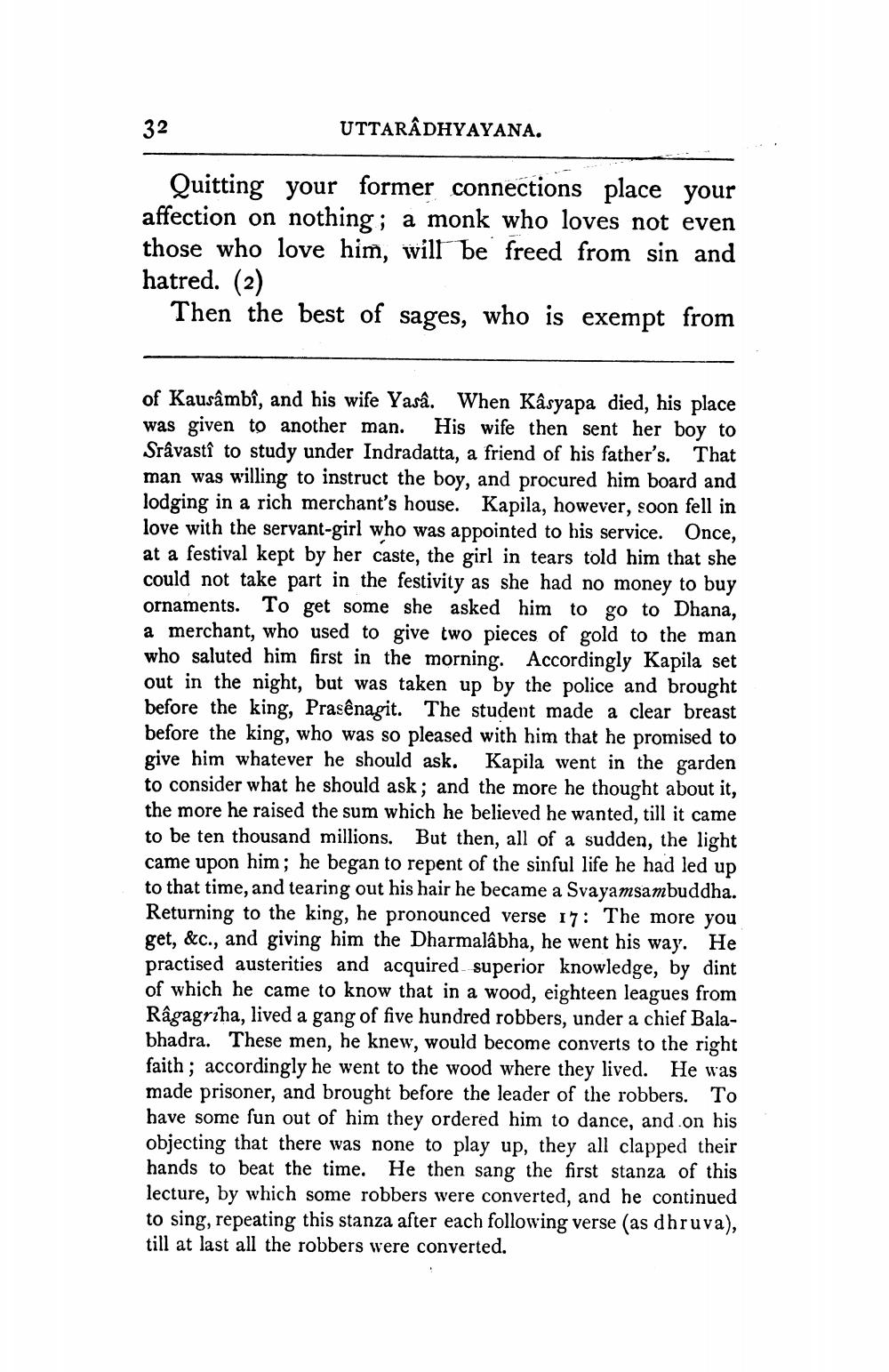________________
32
UTTARADHYAYANA.
Quitting your former connections place your affection on nothing; a monk who loves not even those who love him, will be freed from sin and hatred. (2)
Then the best of sages, who is exempt from
of Kausâmbs, and his wife Yasâ. When Kâsyapa died, his place was given to another man. His wife then sent her boy to Srâvastî to study under Indradatta, a friend of his father's. That man was willing to instruct the boy, and procured him board and lodging in a rich merchant's house. Kapila, however, soon fell in love with the servant-girl who was appointed to his service. Once, at a festival kept by her caste, the girl in tears told him that she could not take part in the festivity as she had no money to buy ornaments. To get some she asked him to go to Dhana, a merchant, who used to give two pieces of gold to the man who saluted him first in the morning. Accordingly Kapila set out in the night, but was taken up by the police and brought before the king, Prasênagit. The student made a clear breast before the king, who was so pleased with him that he promised to give him whatever he should ask. Kapila went in the garden to consider what he should ask; and the more he thought about it, the more he raised the sum which he believed he wanted, till it came to be ten thousand millions. But then, all of a sudden, the light came upon him; he began to repent of the sinful life he had led up to that time, and tearing out his hair he became a Svayamsambuddha. Returning to the king, he pronounced verse 17: The more you get, &c., and giving him the Dharmalâbha, he went his way. He practised austerities and acquired superior knowledge, by dint of which he came to know that in a wood, eighteen leagues from Râgagriha, lived a gang of five hundred robbers, under a chief Balabhadra. These men, he knew, would become converts to the right faith ; accordingly he went to the wood where they lived. He was made prisoner, and brought before the leader of the robbers. To have some fun out of him they ordered him to dance, and on his objecting that there was none to play up, they all clapped their hands to beat the time. He then sang the first stanza of this lecture, by which some robbers were converted, and he continued to sing, repeating this stanza after each following verse (as dhruva), till at last all the robbers were converted,




